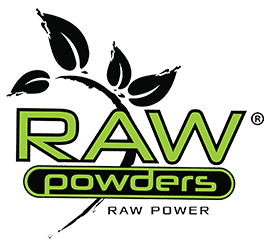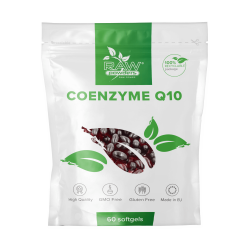CREATINE: THE POWER SUPPLEMENT'S EFFECTS, BENEFITS, AND EXPERIENCES!


During a workout, creatine is regarded as a natural fitness booster. It is an endogenous compound that is required for muscle energy supply, energy metabolism, muscle building, and skeletal formation. Creatine's effects are primarily used in sports and fitness.
What is the source of creatine?
Creatine is produced independently and naturally in the body (from amino acids in the liver and pancreas) and is also ingested through food. Because it is primarily found in muscle tissue, a diet high in meat and fish is essential. However, in some cases, the creatine requirement cannot be met solely through food (for example, in competitive sports, with vegetarian and vegan diets, or in old age) – in these cases, creatine food supplements are extremely beneficial!
What is creatine made from?
Creatine powder has no taste, is white, and is not very soluble in water.
Because it is synthesized (e.g., from sarcosine and cyanamide) as a dietary supplement, it is critical to use reputable manufacturers and high-quality, pure creatine.
In addition, Creatine gluconate is popular, particularly in bodybuilding, because creatine is bound to a glucose molecule. Creatine is more soluble in liquids and can be absorbed more quickly by the body as a result of this combination, resulting in a particularly beneficial effect of the creatine supplement.
Creatine HCL - creatine with hydrochloride - is also available.
Organic salts are added to the pure creatine powder, which means that the substances are absorbed better and faster.
Creatine's primary applications include:
- Creatine in sports: as a fitness, workout, or competitive sport supplement
- Creatine supplementation: for creatine deficiency (e.g. age or diet)
- Pregnancy and creatine (on medical advice only)
- Creatine in the diet: to keep muscle mass
When it comes to creatine, there are specific intake recommendations, as well as side effects to consider. All of this is covered in the blog's Creatine dosage and Creatine side effects.
Creatine Effects: The Most Important Creatine Facts
The primary function of creatine in the body is as an energy carrier. In other words, creatine is usually present wherever the body requires energy.
Furthermore, creatine as a dietary supplement is intended to promote faster regeneration, prevent injuries, support the formation of muscle strength and mass, and compensate for potential natural creatine deficiency.
As previously stated, our bodies produce 1 to 2 g of creatine per day on their own. A healthy adult, on the other hand, requires 3 to 7 g per day. It makes sense to take more creatine, especially if he or she wants to improve (sports) performance, works with muscle power, has a creatine deficiency, or wants to avoid one.
A quick overview of creatine's use and effects:
- Creatine for muscle building and general sports
Creatine is an excellent dietary supplement for almost all athletes because it improves performance and promotes muscle growth. Creatine is frequently used in competitive sports and bodybuilding to increase the individual stress limit and maximum strength.
Creatine has the effect of increasing maximum muscle strength, mass, and performance, particularly during high physical exertion (weight lifting, HIT training, etc.). The EFSA recently confirmed this as well (European Food Safety Authority). A daily dose of 3 g was given as the basis for an increase in performance, but an intensive load was also required (training, physical work, etc.).
Athletes who are vegan or vegetarian, in particular, can benefit from creatine supplements because they cannot produce enough of it through their diet.
- Creatine for recovery:
Several studies (including Kreider, Kalman, Antonio, et al.) attest to creatine's particularly beneficial effect in preventing fatigue symptoms as well as reducing cell damage (especially in endurance sports). As a result, the recovery period can be cut short. It is a popular supplement in weight training to promote rapid regeneration with creatine. Magnesium also aids in this process and prevents muscle cramps, so both active ingredients are found in many sports nutrition plans.
- Creatine in the event of a supply shortage
Some people produce very little creatine on their own. Taking creatine makes sense, especially for vegetarians/vegans or older people who participate in sports or must perform at high levels of physical activity.
Creatine supplements can help seniors stay fit in old age because an adequate level of creatine in the body not only prevents muscle breakdown that occurs with age but also promotes healing and supports bone density.
It is necessary to discuss creatine consumption with your doctor, especially if you have a history of illness, are elderly, or are pregnant. In fitness and competitive sports, regular health checks are also advised. You can read about potential restrictions when taking it, even if you have a history of illness, here: Creatine side effects.
Users' creatine experiences
Creatine has been used in the fitness industry for many years. It is still relatively new as a vegan or vegetarian supplement. Our users consistently report positive creatine experiences and powder tolerability. However, it is critical to adhere to creatine doses in order to reduce the possibility of creatine side effects.
We've compiled the most frequently asked questions and experiences with creatine.
- Is creatine a form of doping?
No! Because creatine is an endogenous substance, supplements containing pure creatine powder are not accepted by the World Anti-Doping Agency.
They are therefore classified as doping and are thus permitted (and popular) in professional and competitive sports. It is critical to always look for pure creatine that is free of additives and has had any unnecessary residues removed.
- How does creatine affect women?
Some of our users are unsure whether taking keratin will result in (possibly unwanted) weight gain.
On the one hand, studies have shown that there are no gender differences in natural creatine levels in men and women. In general, fitness and sports enthusiasts strive for the same training goals: increased strength, performance, definition, endurance, and regeneration. Creatine is an excellent supplement for this purpose, regardless of gender. When training with creatine, many users report a decrease in body fat percentage.
In terms of weight gain, everyone's the same: creatine is stored in the muscle, and water is partially stored there as well. It can result in increased muscle volume. A slightly higher weight combined with intense training ensures that specific body parts and areas (for example, buttocks or back, depending on the training goal) look very trained and become "crisp."
So there are no differences in training with creatine supplements between men and women.
In addition, there are numerous positive testimonials about creatine during pregnancy, as it is required for growth and healthy development, and the requirement can be increased. However, a medical evaluation and recommendation from the physicians are always required.
- When does creatine monohydrate start to work? How quickly?
There is no definitive answer to the frequently asked topic of how quickly creatine works because the time it takes for creatine to start working varies on the user, the dosage, and other variables.
When taking creatine powder, users report seeing results rather quickly. The body's "creatine stores" are filled within 5 to 21 days, depending on the application, and with concurrent exercising, a gain in weight and muscle mass is immediately apparent. Most importantly, the regeneration period is cut short, and performance is greatly improved.
The beneficial creatine effect, however, might be anticipated considerably more immediately with a creatine treatment (see creatine dosage). The creatine stockpiles will be fully stocked after 3 weeks of consistent modest dosages (3-5g). This should be more than enough for hobbies or to make up for a creatine shortage.
- What research has been done on the long-term effects of creatine?
Short-term and long-term usage of creatine supplements is well tolerated by healthy, active individuals, according to recent studies on the long-term effects of creatine (up to 5 years).
Additionally, it was discovered that taking up to 5 g of creatine daily virtually never results in negative side effects. Users have also confirmed that adverse effects are uncommon, especially when using high-quality, readily soluble creatine powder at modest doses. Side effects of creatine: more information on this blog.
Who is a good candidate for supplements like creatine?
Purchasing nootropics and dietary supplements is becoming more popular all over the world.
According to a 2021 nutrition study, 53% of Germans (USA: 76%), particularly vitamins (53%), minerals (33%), and proteins (19%), regularly take food supplements.
Dietary supplements are sensible, particularly when there is a deficiency, health issue (such as pain, sleep issues, depression, inflammation, etc.), or increased need as a result of physical or mental performance (sport, stress).
Sources:
https://de.myprotein.com/thezone/supplemente/creatin-einnahme-wirkung-dosierung-nebenwirkungen/
https://www.fitmasters.de/creatin-fuer-frauen/
https://www.nutri-plus.de/creatin-und-frauen-eine-sinnvolle-kombi
https://sinob.de/Creatin-Ratgeber
https://www.supplement-insider.de/blog/wann-wirkt-creatin/
https://flexikon.doccheck.com/de/Kreatin





_front%20(1)-250x250.png)



_front%20(1)-250x250.png)

-(NN)_front%20(1)-min-250x250.png)

_front%20(1)-250x250.png)


_front%20(1)-min-250x250.png)
_front%20(1)%20(1)-250x250.png)
_front%20(1)-250x250.png)









